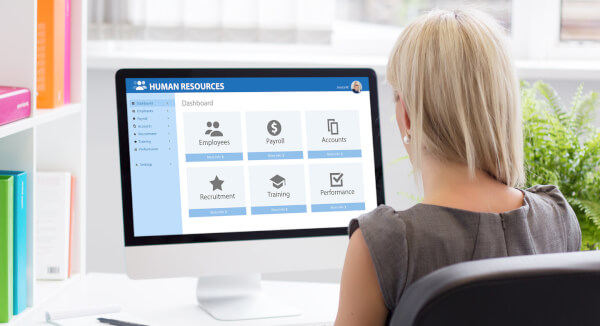Airwallex NZ: Guide to business accounts, fees & global payments
Learn more about Airwallex in New Zealand. Our guide covers its all-in-one business accounts, products and features offered, and fees.

While it is possible to earn good money starting an online business in New Zealand, it won’t necessarily be easy. Market saturation, tech troubles, regulatory headaches and other challenges confront the Kiwi entrepreneur.
Keen to have a crack, but unsure where to begin? This post covers how to get started, including the business plan, market research, structure, registration, regulations, and building a web presence.
| Table of contents |
|---|
Before diving in, consider whether an online business suits you better than a traditional brick-and-mortar premises.
If you're all in on the idea, follow our step-by-step guide.
A business plan is the foundation of any commercial endeavour, online or not. Even if you won’t pursue investors, creating this document is a fundamental first step. A business plan clarifies your product, defines processes, sets objectives, and builds a road map to success.
This is the time to clearly define what you are selling. Are you flogging products like apparel, accessories, or software apps? Or will you offer services such as content creation, consulting, or coaching? Brainstorm how you can stand out from the competition.
A business plan should also specify where you’re selling. We don’t mean Auckland versus Arrowtown. Decide whether to develop a website from scratch or use an existing platform like Shopify for e-commerce or Upwork for freelancing services.
Don’t worry. You don’t have to write a thesis-length saga, and you can use AI to speed up proceedings. Business NZ has handy business plan templates to peruse.
Every business should do market research to understand who will buy their product and why. Question whether there is sufficient demand despite market saturation.
Identify your typical consumer. Marketing strategies for business-to-business (B2B) and business-to-consumer (B2C) models vary drastically. Evaluate the size of your potential market, where they live or work, and whether your product fulfils their desires.
Next, draft a list of your top competitors and outline their advantages. Look at pricing structures, marketing strategies, sales figures, and market share.
Not sure where to find this information?
Statistics New Zealand publishes free, up-to-date data for business, as do many Kiwi banks. Trade and industry associations also evaluate market trends.
Most publicly traded companies operating in New Zealand must legally provide annual financial reports to shareholders.1 Look for the “investor relations” section, or similar, on their website.
Well-funded online startups might prefer to outsource market research to a third-party organisation, like Statistics New Zealand’s Customised Data Services.
Most Kiwi businesses use one of three business structures: sole trader, company, or partnership. Each has unique legal and financial obligations, yet also shares a few things in common:
A sole trader might be the best fit for small online stores and freelancers. Entrepreneurs planning to source investors, scale, or sell their business may prefer a company structure.3
For help choosing the right structure, seek advice from fellow business owners, consult an accountant specialising in your industry, and use the Business NZ Choose a Business Structure tool.
The process of registering a business in New Zealand varies between structures.
As a sole trader, you don’t need to register with any official agency, though you must inform the Inland Revenue Department (IRD) of your business intentions. If you don’t have one, you’ll need a personal IRD number to file income tax.3
You must follow more rigid procedures to start a partnership, where you and at least one other person share skills and resources, or a company, a separate legal entity offering financial protections. Depending on the structure, steps may include:
Regardless of the structure, if you expect to turn over more than $60,000 in a year, you must also register for GST.5
Your online business is now official. The next step is setting up a business bank account.
Whether you’re a freelancer or running an online company, separating business and personal finances makes bookkeeping and tax filing infinitely easier. The process only takes a few minutes and will save you major headaches later–it’s a no-brainer.
Expanding a business globally opens up exciting opportunities, but also new challenges like receiving payments across borders. Hidden foreign transaction fees and hefty currency conversions involved with international payments can eat into your profits and time.
Wise Business serves as a cost-effective solution where you can send and receive money across the globe at the speed and price of local payments. With a Wise multi-currency account, you'll benefit from the following:
Sign up for the Wise Business account! 🚀
This general advice does not take into account your objectives, financial circumstances or needs and you should consider if it is appropriate for you.
There’s no point in running an online business that nobody can see. You’ll want to get a website ready ASAP. Start by finding the perfect domain name, which should ideally:
Use the ICCAN Lookup tool to see if your domain has been taken and by whom. Should your ideal domain be available, choose a website-hosting service and register it ASAP.
The good news for bootstrappers is that you don’t need elite tech expertise to develop a basic website. Newbie-friendly apps like Wix, Squarespace, Canva, and WordPress have pre-built templates and simple, drag-and-drop interfaces suitable for rudimentary computer skills.
Online businesses with bigger budgets might hire a web developer or marketing agency to create a more polished, Search Engine Optimised (SEO) website. Expect to spend between $3,000 and $10,000 on a nice website suitable for a small online business. Big e-commerce stores regularly invest $50,000 or more. Start small to test the waters, then scale.
Setting up a payment platform for your online business in NZ involves choosing a secure and reliable payment gateway to process customer transactions. When making your choice, consider factors like transaction fees, supported currencies, ease of integration with your e-commerce platform, fraud protection, and customer support, ensuring it aligns with your business needs and growth plans.
With walk-in traffic stumbling into your store, you must nurture an online presence to thrive.
SEO makes customers more likely to find you online. Tricks of the trade–quality blog content, keyword optimisation, backlinks, page load times, alt tags, and meta descriptions–help prioritise your website before the Google algorithm gods. But it’s a slow, long-term strategy that’s expensive to implement.
Another approach is Social Media Marketing (SMM), where you build brand awareness through platforms like Facebook and Instagram. By creating social media-friendly content, engaging with followers, and using paid campaigns, entrepreneurs can widen their reach and lure new leads. You can DIY SMM or hire a professional for better results.
Pay-Per-Click (PPC) advertising means paying Google to whack your website at the top of the search results. This approach yields instant results, but it can be pretty expensive, especially if you’re not attracting qualified leads.
The classic word-of-mouth method still applies online. Provide the best experience possible and encourage happy customers to leave a review. Flexible return policies or bonuses like free shipping help keep consumers content.
The most successful online businesses adopt a combination of all these strategies.
You must comply with all New Zealand laws. Experts offering services in accounting, healthcare, and finance, for example, will need to hold the appropriate certifications.
Online businesses must consider privacy and consumer protection laws, as well as website terms and conditions, and employment obligations. Brands conducting email marketing must comply with the Spam Act or face a $500,000 fine.6
The Business NZ Compliance Tool is a helpful resource. Contact a qualified lawyer if you have any doubts.
Starting an online business in New Zealand offers the appeal of low startup costs, scalability, and flexibility, but it's not without its hurdles, including market saturation, technical challenges, and regulatory complexities. Establishing a strong web presence is crucial, involving careful website development, selection of payment platforms, and strategic online marketing efforts like SEO and social media.
Setting up a dedicated business account with providers like Wise Business plays a role in ensuring businesses can handle transactions in multiple currencies. It serves as a cost-effective solution that allows users to make currency conversion at the mid-market rate without losing money on hidden fees and high rates.
Sign up for the Wise Business account! 🚀
To start an online business, you should develop a business plan, conduct market research, select a business structure, establish a web presence, and choose a business bank account and payment platform.
Online businesses with a sole trader structure need only inform the IRD of their intentions, while online companies and partnerships require formal registrations.
Online business ideas include services like translations, writing, web development, or selling products such as handmade goods, apparel, or accessories through an e-commerce store.
Sources:
*Please see terms of use and product availability for your region or visit Wise fees and pricing for the most up to date pricing and fee information.
This publication is provided for general information purposes and does not constitute legal, tax or other professional advice from Wise Payments Limited or its subsidiaries and its affiliates, and it is not intended as a substitute for obtaining advice from a financial advisor or any other professional.
We make no representations, warranties or guarantees, whether expressed or implied, that the content in the publication is accurate, complete or up to date.

Learn more about Airwallex in New Zealand. Our guide covers its all-in-one business accounts, products and features offered, and fees.

Comparison of Airwallex vs Wise for NZ businesses. Overview of difference fees, features, and usability to find the best fit for your business. Read here!

Learn how to start a business in New Zealand. Our guide details business structures, registration steps, tax & GST rules, costs, and how to overcome challenges.

Learn what documentation you need to open a business account online, the steps you must follow, and which New Zealand banks offer online setups.

Learn what to consider when weighing up different payroll options. Compare some of the top payroll solutions for small businesses in New Zealand.

Looking for the right business banking in NZ? We compare products, fees, and services from top banks in New Zealand to help you choose the best fit.